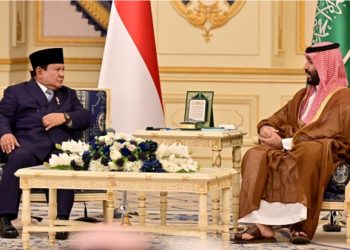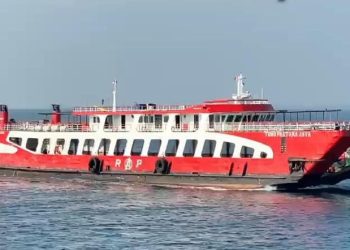Jakarta – Micro, Small and Medium Enterprises (MSMEs) are one of the pillars of the national economy because this sector covers around 99% of the total business units in Indonesia which contribute to the national Gross Domestic Product (GDP) up to 60.51%. It also absorbs almost 97% of the total workforce in Indonesia.
Currently, the contribution of MSMEs to national exports has only reached around 15.7% of total national exports, still below Singapore (41%) and Thailand (29%).
‘This is of course our big job. President Joko Widodo has advised that our MSMEs must not only continue to upgrade, go digital, dominate the local market, but also be able to go international to penetrate the export market and the global market,’ said Coordinating Minister for Economic Affairs Airlangga Hartarto, at the opening of the “Pesta Rakyat UMKM untuk Indonesia” initiated by the Indonesian Chamber of Commerce and Industry (KADIN), PT HM Sampoerna Tbk, and the Japan External Trade Organization (JETRO) Indonesia, in Jakarta, Monday (22/7/2024).
As a form of support for exports by MSMEs, the Government has also formed a Task Force (Satgas) for Increasing National Exports, and in it is incorporated the Working Group (Pokja) for Increasing MSME Exports, where KADIN is also involved as a member of the Task Force.
‘I really appreciate the steps taken by KADIN Indonesia and Sampoerna to continue to encourage the capacity building of MSME players so that they can upgrade to penetrate the global market. I hope that through activities such as Pesta Rakyat UMKM, new forms of collaboration can emerge to encourage Indonesian MSMEs to become part of the global industrial supply chain,’ said Airlangga.
The Government has implemented various financing supports that can be utilised by MSMEs to support export activities, including through Ultra Micro (UMi) financing, People’s Business Credit (KUR), PNM Mekaar, and PNM Ulaam. In addition, the Government has specifically assigned the Export Import Financing Agency (LPEI) to provide financing for export MSMEs, including through the Export Working Capital Financing Facility (PMKE) which provides special working capital needs for exports, as well as facilitating guarantees and insurance.
Support for export MSME capacity building programmes, including financing as well as innovations such as digital-based training and mentoring, play an important role in expanding the base of export MSMEs. The development of an export MSME database is also important so that programmes can be synergised and well-targeted.
Improving access to market information through the involvement of Indonesian representatives in other countries, the Indonesian diaspora, and institutions in partner countries also needs to be improved to encourage exports of our MSME products. Therefore, the Government appreciates the WikiExport programme, which is a collaboration between KADIN and Japan that focuses on the use of technology to connect MSMEs with Japanese businesses and buyers.
‘With the launch of WikiExport, MSMEs are expected to utilise it to easily obtain various export-related information. In the future, I encourage similar programmes to be initiated with other countries,’ said Airlangga.
The WikiExport programme is an initiative developed by KADIN Indonesia since October 2022 in conjunction with the Inclusive Partnership Movement for MSMEs. To date, more than 200 MSMEs have received certified export education and training through the programme. In 2023, the WikiExport programme has successfully brought 9 export-ready Indonesian MSMEs to participate in business matching.
Meanwhile, Sampoerna consistently fosters and assists MSME players to improve their performance and even expand to the global market. Under the umbrella of the ‘Sampoerna for Indonesia’ Sustainability Programme, Sampoerna has two flagship programmes for MSME empowerment, namely the Sampoerna Retail Community (SRC) for grocery stores and the Sampoerna Entrepreneurship Training Center (SETC), which has fostered more than 320,000 MSME players from across Indonesia.
‘In the future, I ask to be able to cooperate with the Pre-Employment Card. In three years, 18 million alumni have been trained. According to the data, there are 250 thousand from SRC and 70 thousand from SETC, for the Government it is too small (those trained), it must be able to increase to hundreds of thousands, so that our entrepreneurs can also be hundreds of thousands. We can start with the online package first, then later enter the offline,’ Airlangga concluded.

























